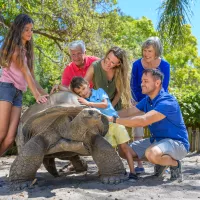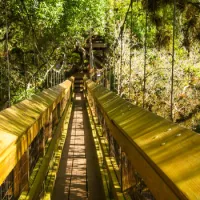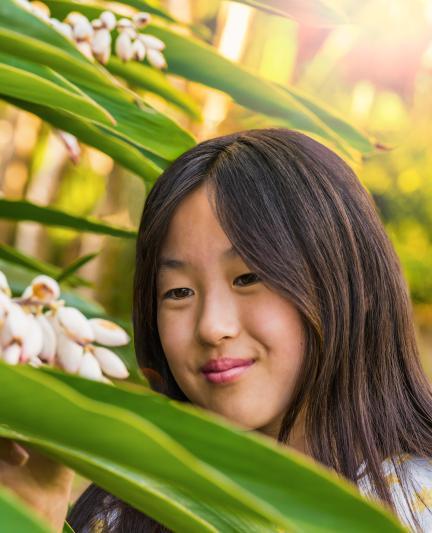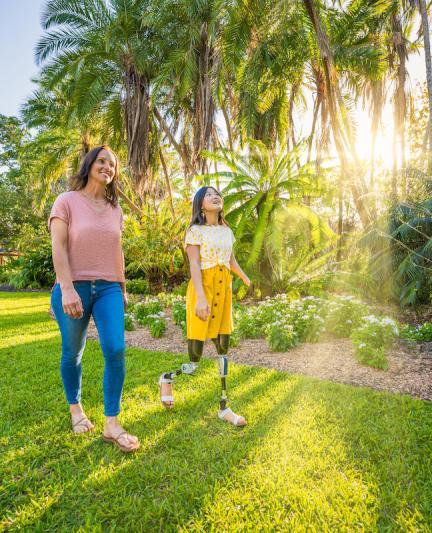Marie Selby Botanical Gardens Named in World's Greatest Places 2024 by TIME
Sarasota's botanical gardens makes TIME Magazine's annual list of world greatest places to visit.
Every year, TIME recognizes the world's 100 most extraordinary destinations to explore. The magazine garners nominations of noteworthy places to stay and visit across the globe from its international network of editorial contributors and correspondents—a network with a discerning eye toward the new and exciting. Destinations span across categories—hotels, cruises, restaurants, attractions and more—and are selected based on their relevance, impact, innovation and success.
Upon completion of a 12-month monitoring period by the International Living Future Institute (ILFI), Marie Selby Botanical Gardens has been designated for 2024. And for anyone who has ever explored the grounds or exhibits will see it as no surprise that the living museum fringing scenic Sarasota Bay found itself in great company on this esteemed list of wanderlust.
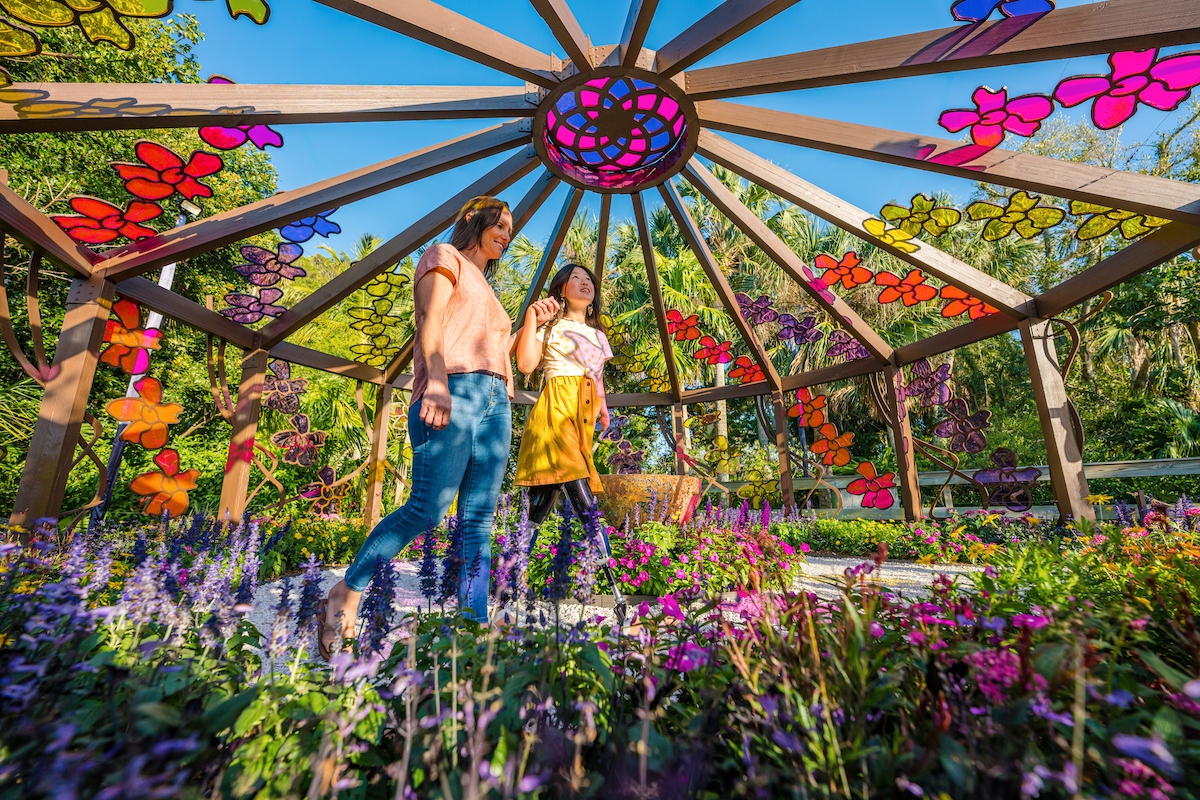
Whether a longtime local or a nature enthusiast from afar, Selby Gardens has a way of transporting you to another world.
Out of 100 locales, Selby Gardens was one of only eight places to visit in the United States, the only Florida location in its category, and the only botanical garden included from around the world. With its storied history and groundbreaking advancements—becoming the first-ever net-positive-energy botanical garden complex in the world—the universal recognition proves a visit to this bayfront oasis is much more than just a place to go admire beautiful plants. Selby Gardens' inclusion in TIME’s 2024 World's Greatest Places of 2024 underscores its power of innovation, sustainability and education that rivals fellow far-roaming mentions—from Australia to Antarctica and beyond.
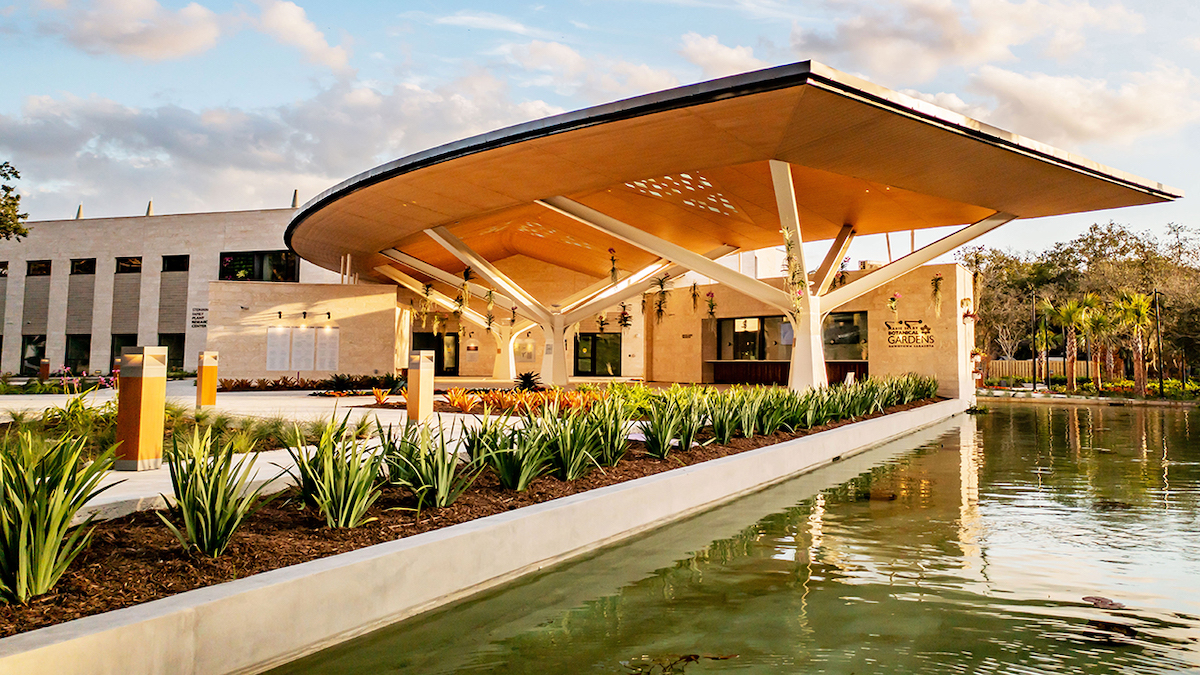 The newly constructed entrance to Selby Gardens welcomes visitors with hanging air plants in bloom.
The newly constructed entrance to Selby Gardens welcomes visitors with hanging air plants in bloom.
Historical Roots & Visionary Pursuits
Founded by forward-thinking women of their time, Marie Selby Botanical Gardens has come a long way since opening to the general public in 1975. The nonprofit now offers visitors two bayfront sanctuaries—the 15-acre Downtown Sarasota campus and the 30-acre Historic Spanish Point campus in Osprey—connected by an inimitable collection of air plants from around the world, Florida-native nature and rich, regional history. Since 1973, scientists from Selby have ventured into some of the world’s most far-flung places to identify, study, collect and learn from the resourceful, remarkable plants you may find there today.
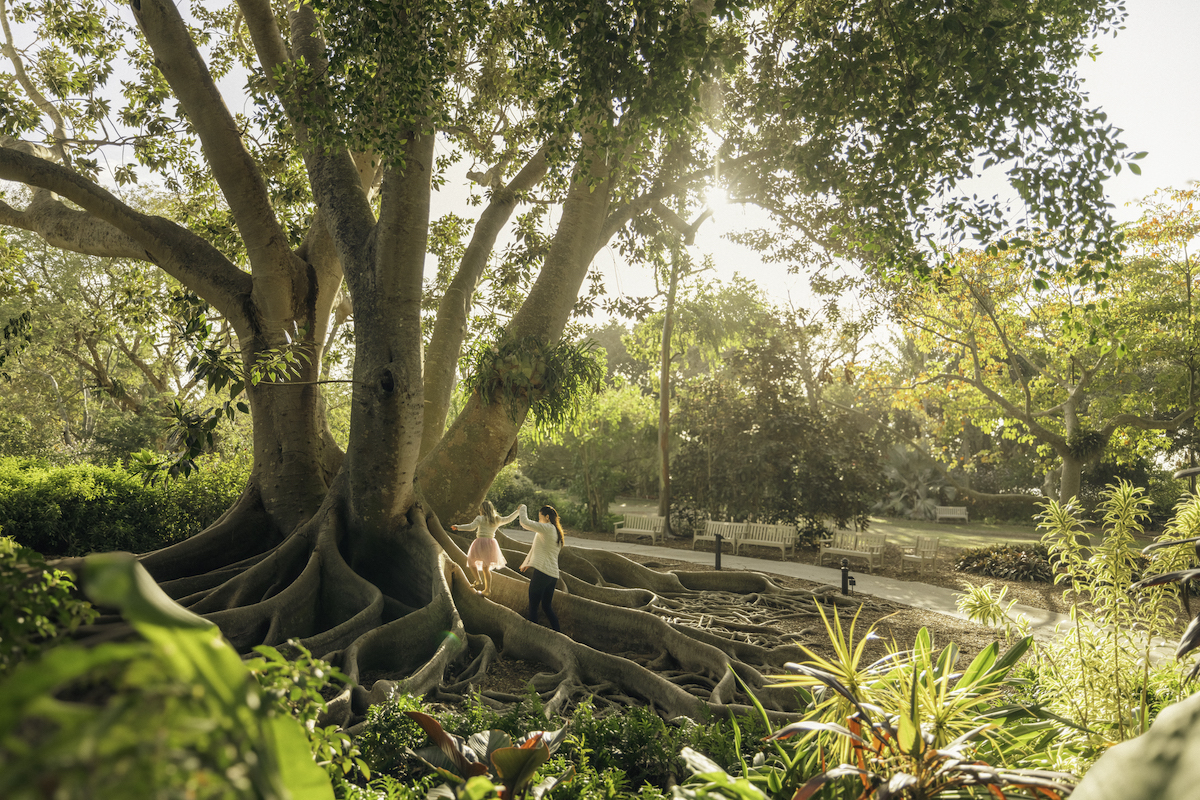 The iconic and exotic banyan trees in front of the Selby House were planted in 1939 by Grover Yancy, a beloved employee of Marie Selby.
The iconic and exotic banyan trees in front of the Selby House were planted in 1939 by Grover Yancy, a beloved employee of Marie Selby.
The Downtown Campus on Sarasota Bay is unique as the only botanical garden in the world dedicated to the display and study of epiphytic orchids, bromeliads, gesneriads, ferns and other tropical plants. With a rotating series of exhibitions through its innovative The Living Museum® model and year-round special events, the campus continues to emphasize botany, horticulture, education, historical preservation and environmental sustainability.
Less than 10 miles south, the Historic Spanish Point (HSP) Campus remains one of the largest preserves showcasing native plants and a rich archaeological record spanning approximately 5,000 years of Florida history. The HSP Campus is home to the region's only butterfly house, as well as an outdoor Native Butterfly Garden and Payne Mansion (listed on the National Register of Historic Places).
Pioneering Sustainable Innovations
In January 2024, Marie Selby Botanical Gardens unveiled a multi-million-dollar expansion—transforming it into the world's first net-positive energy botanical garden complex. This means that Selby Gardens now produces more energy than it consumes, setting a new, international standard for sustainability in botanical gardens worldwide.
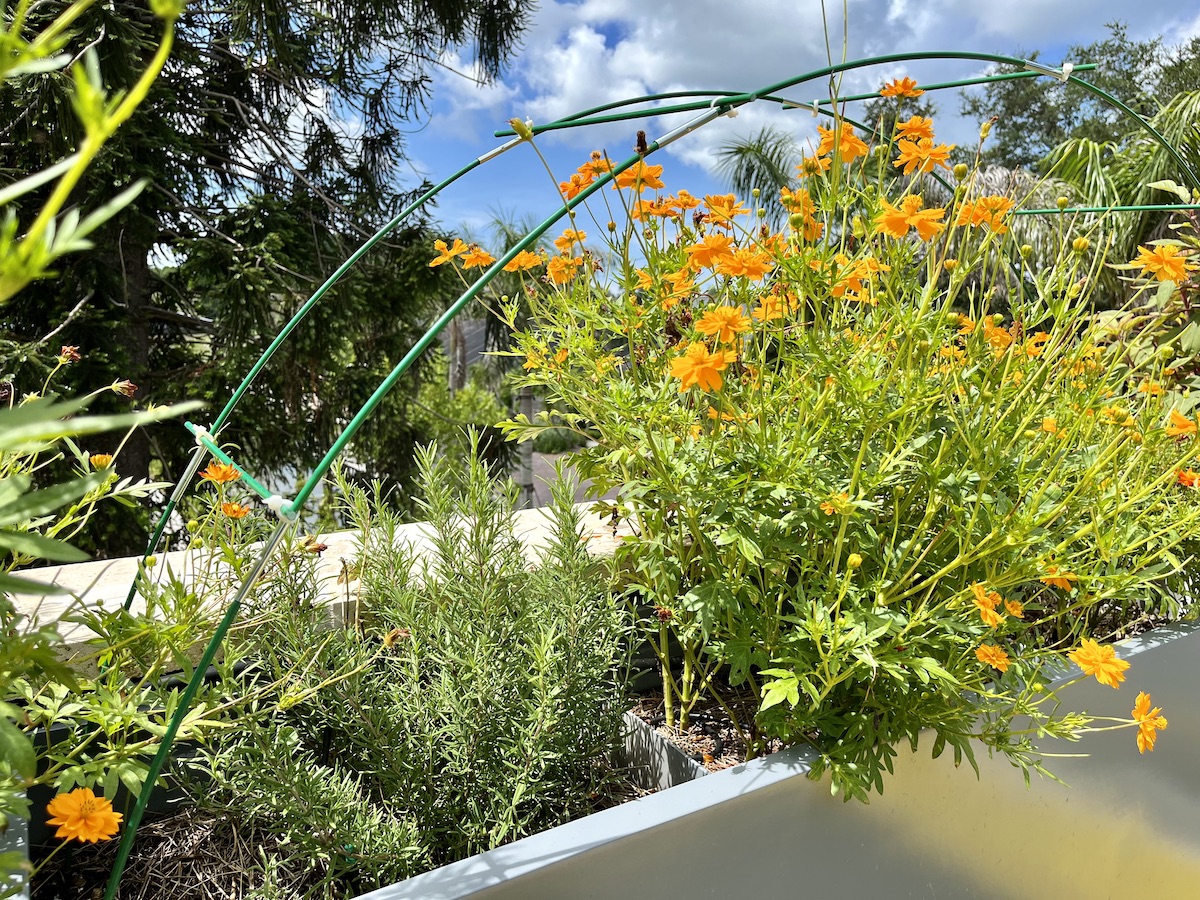
Fresh rosemary and calendula blossoms growing above The Green Orchid restaurant.
This expansion includes the addition of The Green Orchid, a fully solar-powered restaurant named after the rare green orchids found in Selby’s gardens. Set to be the world's first net-positive energy restaurant, The Green Orchid uses no onsite combustion, meaning that all cooking in the kitchen is 100% electric and induction, and is powered entirely by solar arrays. It also operates on a unique “roof-to-plate” concept—with ingredients foraged from its own selection of edible plants, fresh herbs, fruits and vegetables, located right upstairs.
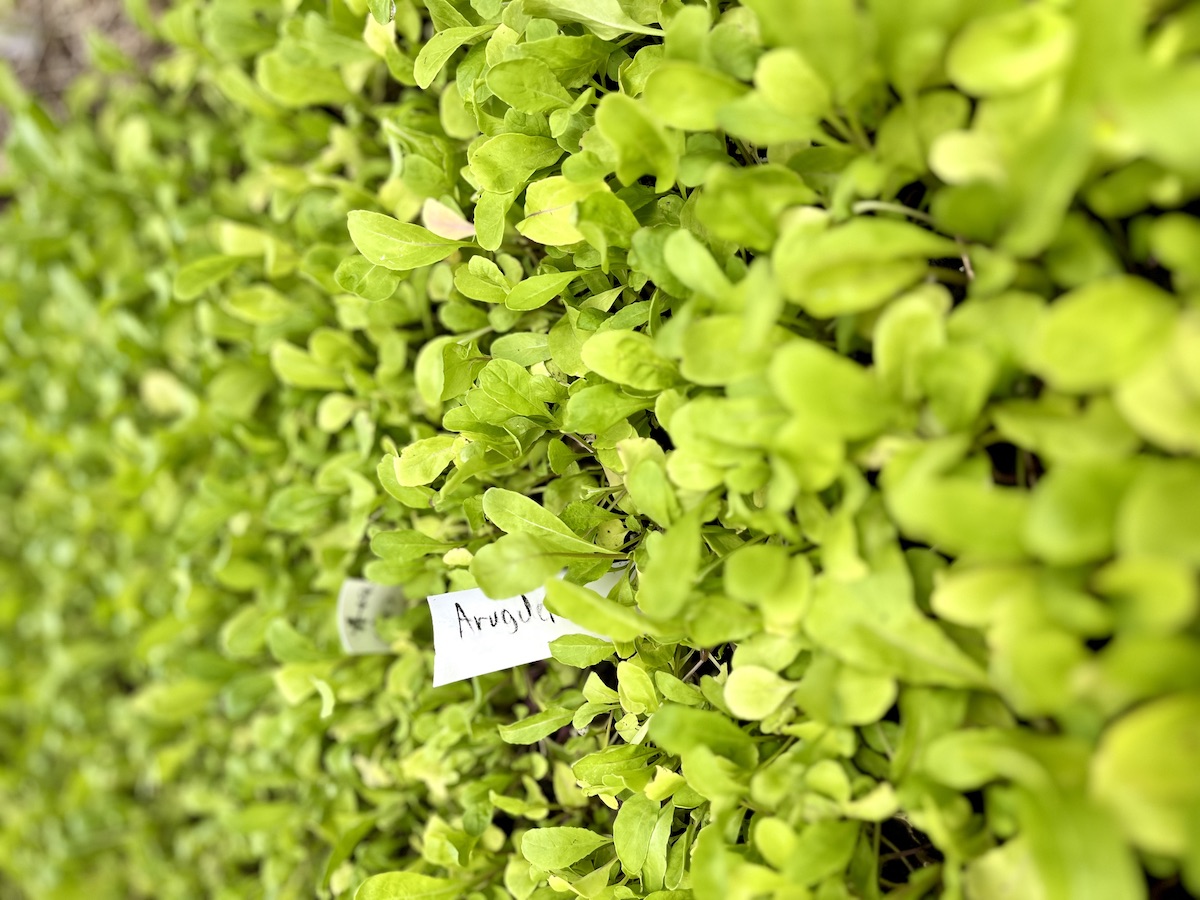
The rooftop garden is planted and maintained by Operation Eco Vets, a non-profit organization for healing veterans.
Operated by local restaurateur Michael Klauber of Michael's on East, the menu features globally inspired dishes utilizing hyper-seasonal, sustainably sourced produce and proteins from local farms. The stylish bar program features botanical-inspired cocktails with finishing touches from—you guessed it—the rooftop garden of everlasting garnishes.
Green Technology & Certifications
Reflective window tints, high-efficiency air conditioning and LED lighting help conserve energy while low-flow plumbing fixtures save precious water throughout the grounds. The Gardens’ Downtown Sarasota campus also has water-management systems in place—including focused hand watering, rain shut-offs and irrigation timers. Plant beds are even mulched with wood from local arborists to conserve soil moisture.
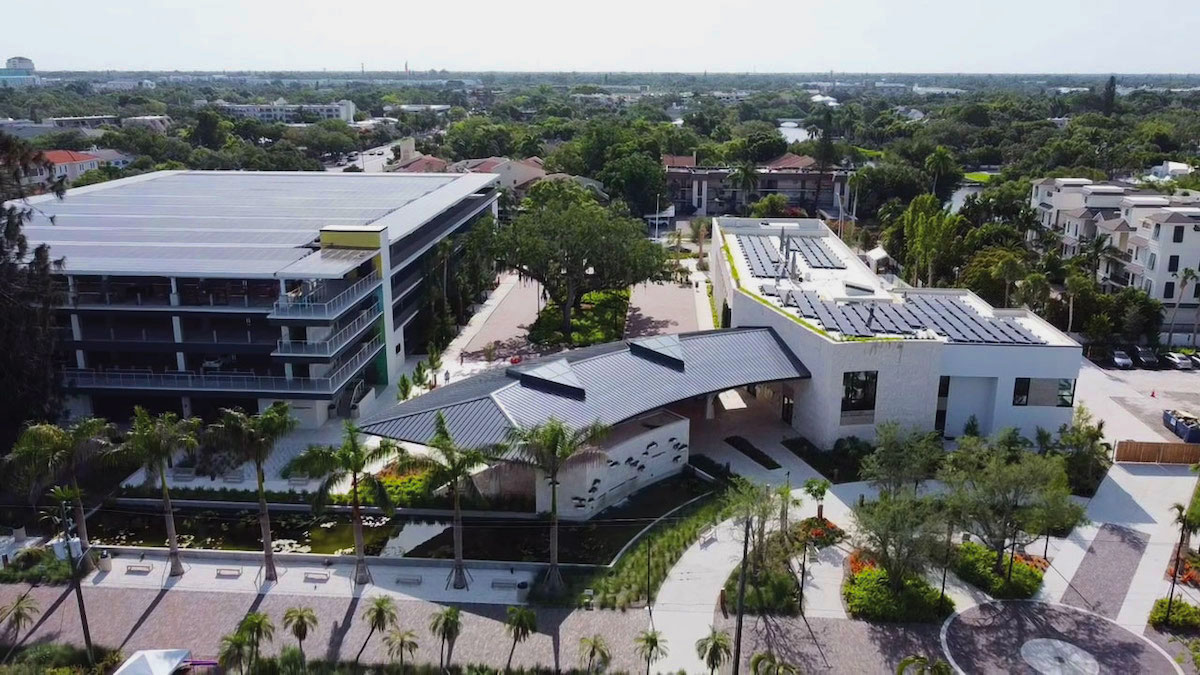
The Morganroth Family Living Energy Access Facility (LEAF), Steinwachs Family Plant Research Center, and Elizabeth Moore Rooftop Garden & Solar Array rooftops power up with 57,000 sq.ft. of solar arrays
Marie Selby Botanical Gardens employs the latest green technology—aiming to surpass LEED certification and achieve “Petal” certification through The Living Building Challenge of the International Living Future Institute. The nonprofit's commitment to sustainable innovation further cements Selby Gardens' status as a leader in environmental stewardship.
Check Selby Off Your List
Want to check one of the top places in the world off your list? Both campuses offer group tour programs that provide immersive experiences led by deeply knowledgeable narrators. Tours highlight the current exhibitions and art installations on view, as well as Selby's botanical research, history and behind-the-scenes explorations.
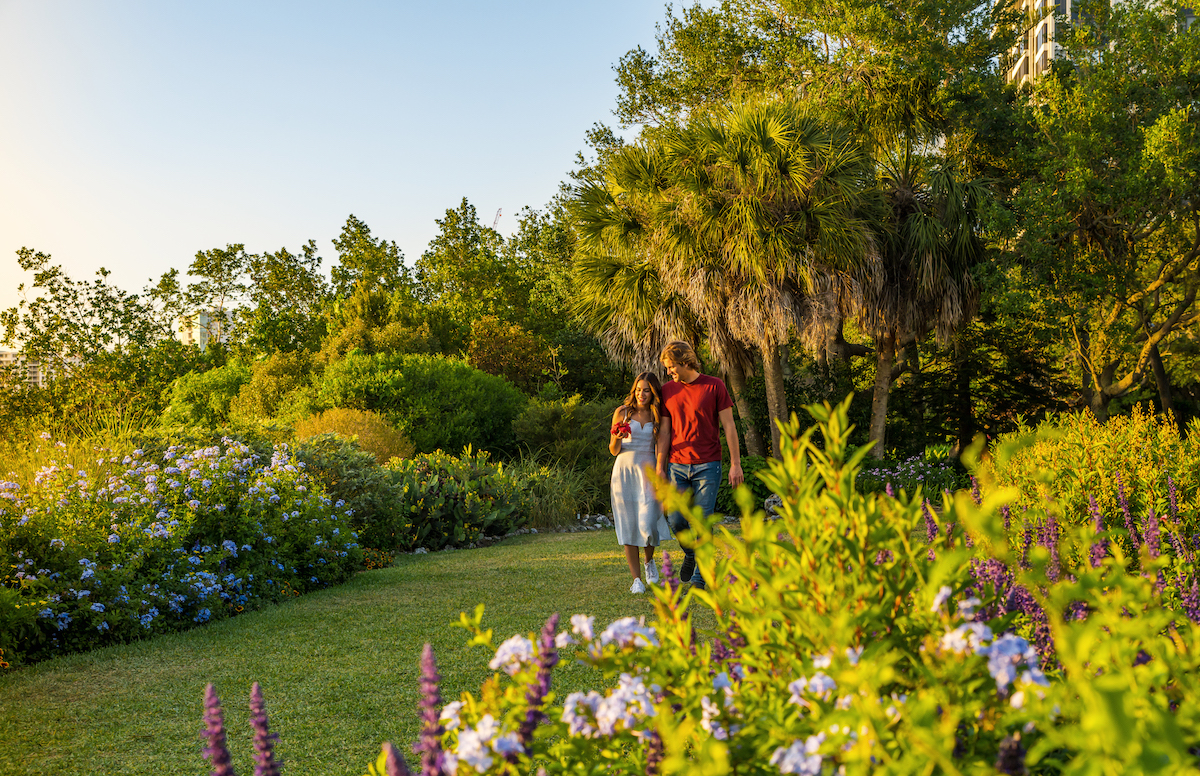
If you prefer to wander the grounds on your own accord, set your pace and opt into a new feature right on your smartphone. The Sarasota-Manatee EcoFlora Project allows visitors to snap a picture of a plant on their camera and upload it to iNaturalist to identify it. Each month, Selby even features a new EcoQuest Challenge to focus on different species and observations. One could say, it also helps in keeping up with the TIMEs.
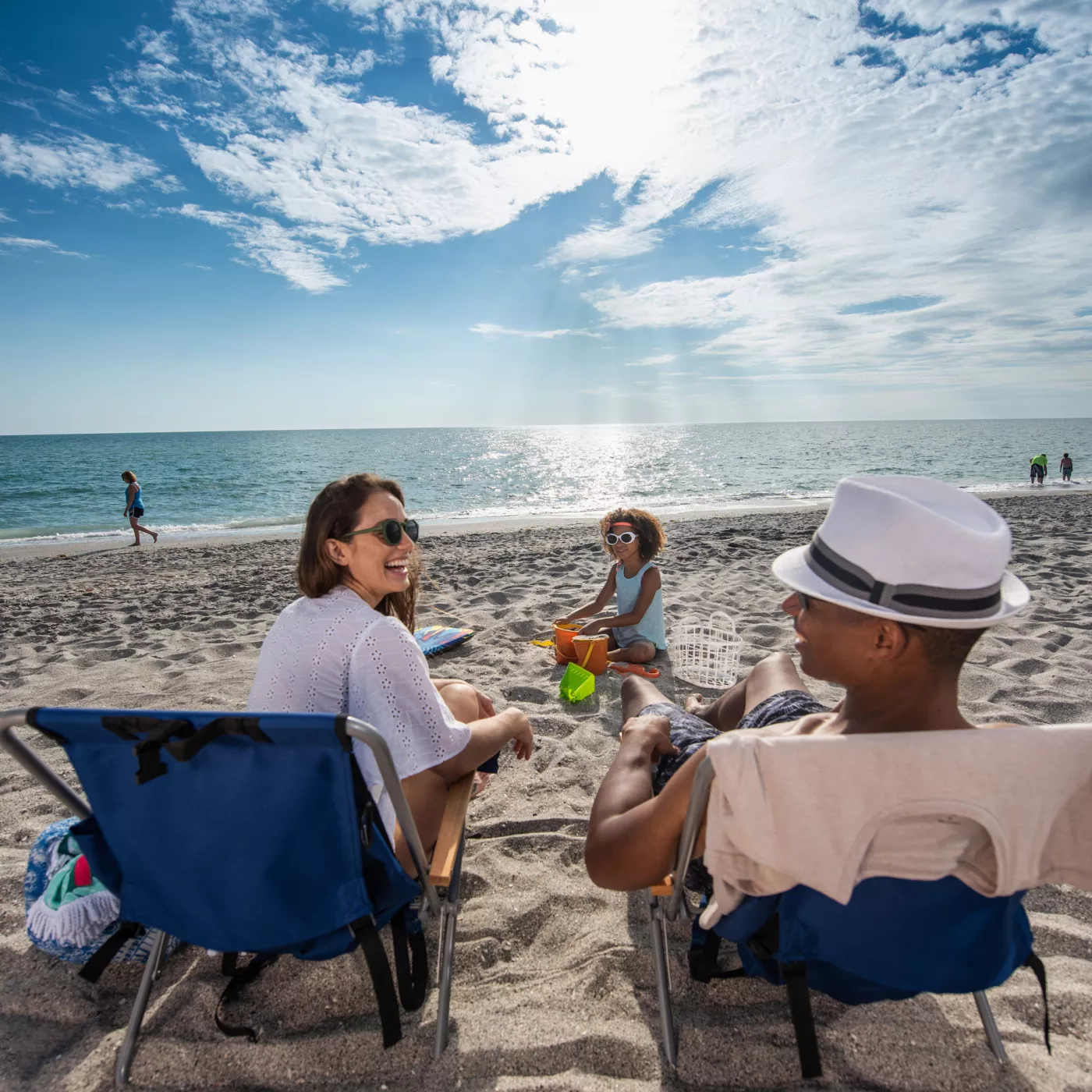
![Boat parking at The Crow’s Nest in Venice [Photo: Lauren Jackson]](/sites/default/files/styles/popular_stories_teaser/public/2023-import/The-Crow%2527s-Nest-cropped__OPT.jpg.webp?itok=ycs37M-O)

